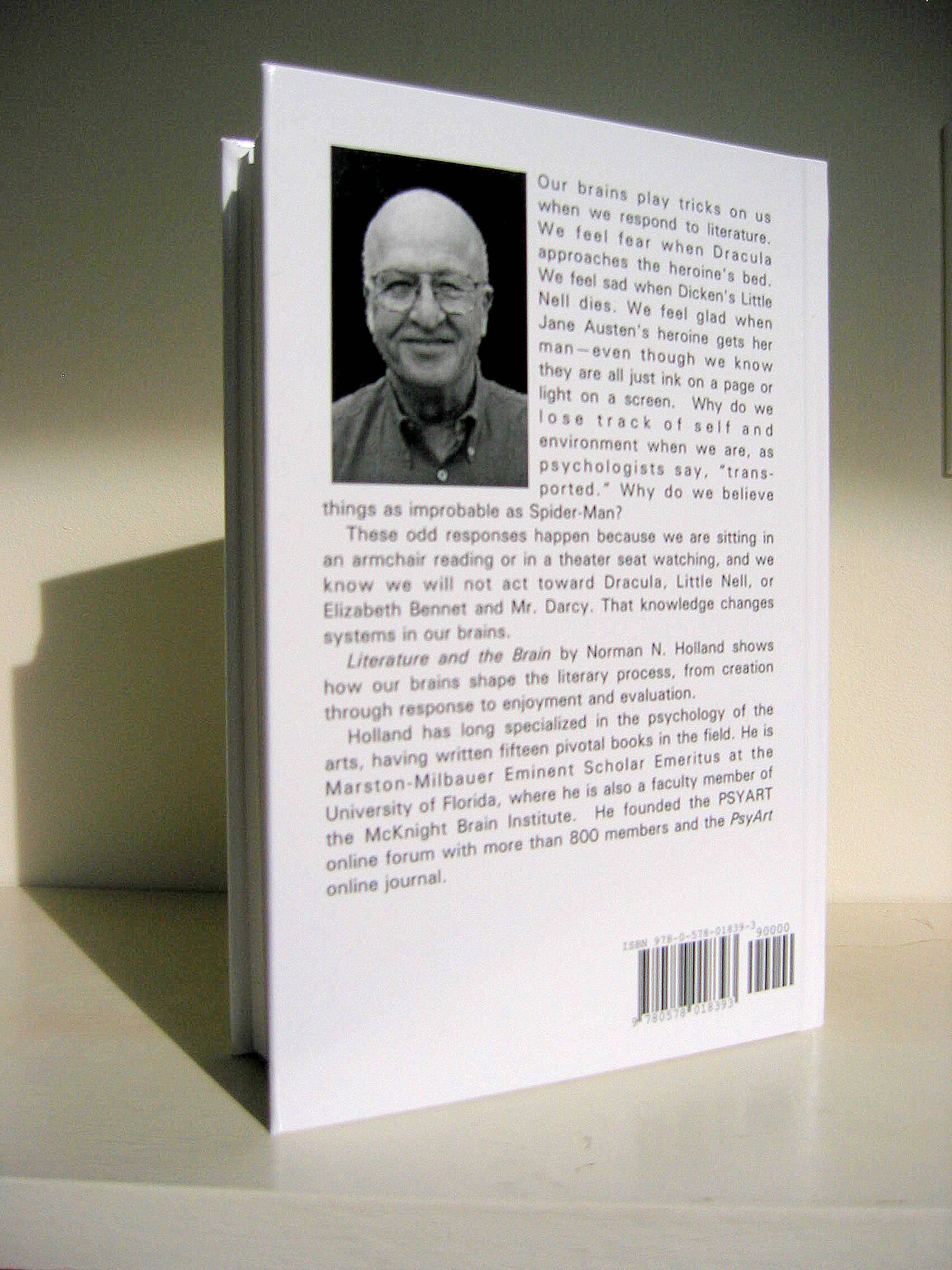Norman Holland's new book, Literature and the Brain, will interest those who wish to learn how the latest research into the brain affects our understanding of literature. His book raises the most fundamental issues about the hows and whys of reading and then provides, with the help of brain research, tentative answers to more specific questions like why we become “absorbed” in literature, why we like certain texts and dislike others, and why and how reading is different from other activities. More than any other theorist, Holland is building bridges between neuropsychology and cognitive psychology, on the one hand, and literary studies, on the other.
—Jeffrey Berman, author of Death in the Classroom: Writing about Love and Loss

This book is the culmination of fifty years of pathbreaking work in psychology and literature. It shows that Holland remains preeminent in the field. Across a remarkable range of topics, the book shows vast learning about brain science and humane sensitivity to art. Moreover, it is written in a lucid and engaging prose. Among its many signal contributions is the rigorous and insightful synthesis of neuroscience and psychoanalysis. It is a book from which everyone can learn a great deal—whether they are artists or neurologists, professional literary theorists or undergraduates, clinicians or empirical psychologists.
—Patrick Colm Hogan, Editor, Cambridge Encyclopedia of Language Sciences

